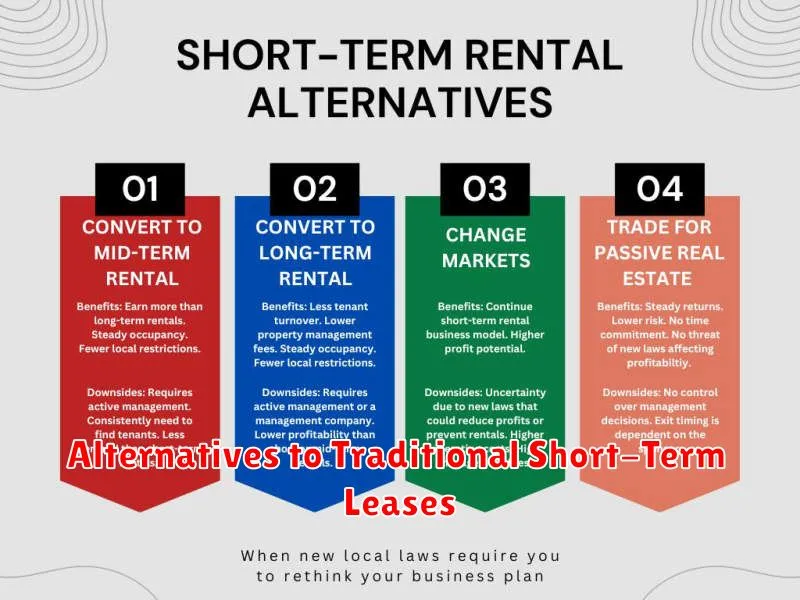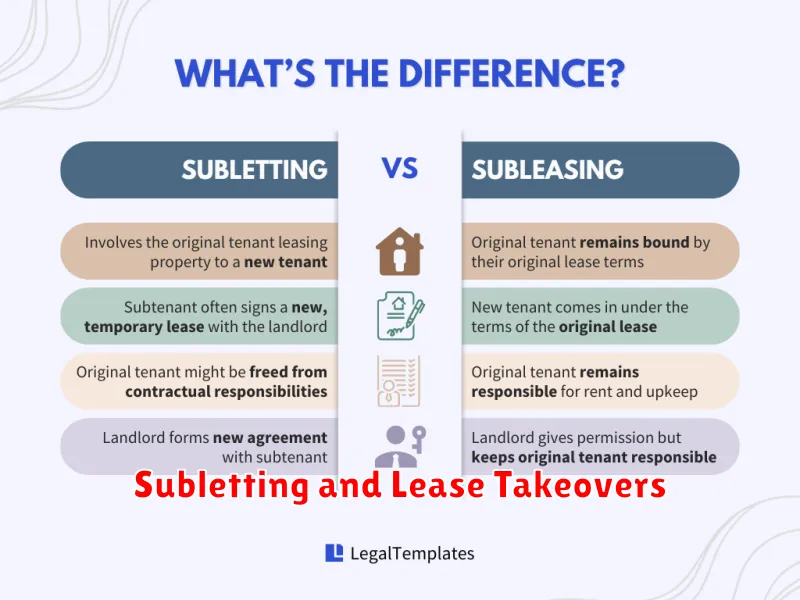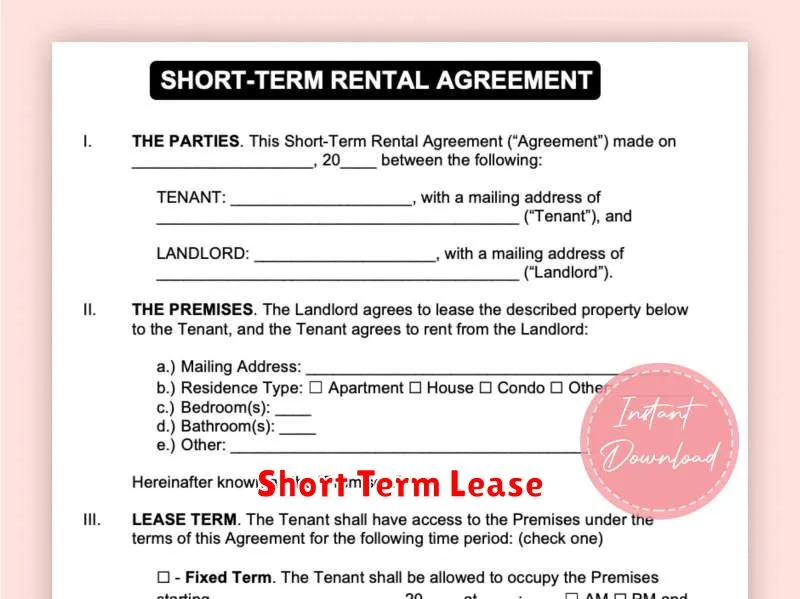Are you moving for a short period of time? Maybe you’re just starting a new job, going to school, or relocating for a temporary project. Whatever your reason, you may not want to commit to a long-term lease, and that’s where short-term apartment leases come in. Finding a short-term apartment lease can be tricky, but it’s not impossible. This article will guide you through the process of finding a short-term apartment lease. We’ll cover everything from understanding different types of short-term rentals to finding the perfect place for your needs. So, read on to discover how to find the best short-term apartment lease for your situation.
Benefits and Drawbacks of Short-Term Leases
Short-term leases, typically ranging from a few months to a year, can be a great option for those who need temporary housing. However, before diving into a short-term lease, it’s essential to weigh the benefits and drawbacks to make an informed decision.
One significant benefit of a short-term lease is flexibility. You can move out at the end of your lease without facing penalties, unlike long-term leases. This is particularly beneficial for individuals with unpredictable schedules, such as those traveling for work or relocating.
Another advantage is that short-term leases are often found in furnished apartments. This eliminates the hassle and expense of buying furniture, making it ideal for temporary stays. However, it’s crucial to note that furnished apartments often come with a higher rent, and it’s important to check the condition of the furniture before signing the lease.
While short-term leases offer flexibility, they also come with some drawbacks. The biggest disadvantage is the higher rental costs. Landlords often charge a premium for short-term leases to compensate for the risk of vacant units. Additionally, short-term leases may not be as readily available as long-term leases, especially in popular areas.
Where to Find Short-Term Rentals
Finding a short-term rental can be a bit trickier than finding a long-term lease, but it is definitely possible! The key is to know where to look. Here are some of the best places to find short-term rentals:
Online Marketplaces
Websites like Airbnb, VRBO, and HomeAway are popular choices for short-term rentals, offering a wide range of options from apartments to entire homes. These platforms allow you to filter your search based on your needs, such as location, budget, and dates. You can also read reviews from previous guests to get a better idea of the property and the host.
Short-Term Rental Agencies
Companies that specialize in short-term rentals, such as Furnished Finder and Corporate Housing by Owner, can offer a more personalized experience. They can help you find a furnished apartment that meets your specific requirements and handle the logistics of the rental process.
Local Real Estate Agents
Don’t underestimate the power of a good local real estate agent. They have access to listings that may not be available online and can help you navigate the local market. They can also provide valuable insights and advice on finding the best short-term rental for your needs.
Direct Contact with Landlords
Contacting landlords directly is another option. You can find their contact information on online rental listings, local newspapers, or even by visiting apartment buildings in your desired area. This approach gives you more control over the rental process and allows you to ask specific questions about their short-term rental policies.
Negotiating a Short-Term Lease Agreement
Finding a short-term lease can be a challenge, but don’t despair! Many landlords are open to negotiating a shorter lease, especially if you are a reliable tenant with a good rental history. Here are a few strategies to help you negotiate a short-term lease agreement:
Be upfront and honest about your needs. Explain your situation clearly and why you need a short-term lease. Landlords are more likely to accommodate you if they understand your circumstances.
Offer a higher rent. You may need to pay a premium for a short-term lease, especially in a competitive rental market. Consider offering a slightly higher rent to incentivize the landlord.
Be flexible with your move-in date. If you are flexible with your move-in date, you are more likely to find a landlord willing to negotiate a short-term lease.
Provide a strong credit history and references. Landlords want to be confident you are a responsible tenant. Providing good credit history and excellent references demonstrates your reliability.
Consider a lease-break clause. If you are unsure about the length of your stay, consider negotiating a lease-break clause. This allows you to break the lease early with a specified penalty.
Get everything in writing. Once you have reached an agreement, make sure it’s documented in a signed lease. This will protect both you and the landlord.
Remember, communication is key. By being upfront, flexible, and professional, you can increase your chances of successfully negotiating a short-term lease agreement.
Understanding the Costs and Fees Involved
When looking for a short-term apartment lease, it’s crucial to understand the associated costs and fees. Unlike traditional long-term leases, short-term leases often come with additional charges. These can include:
- Higher rent: Short-term leases usually have higher rent compared to long-term leases due to the shorter tenancy period and the need for landlords to cover potential vacancy periods.
- Security deposit: This deposit is typically refundable at the end of the lease, but the amount may be higher for short-term rentals.
- Application fees: Some landlords may charge application fees to cover the cost of processing your application.
- Pet fees: If you have a pet, expect to pay pet fees and deposits.
- Cleaning fees: Landlords may charge a cleaning fee to ensure the apartment is left in a clean and habitable condition.
- Early termination fees: If you need to break your lease early, you may face penalties.
It’s important to inquire about all fees upfront and negotiate if possible. Don’t be afraid to ask about the breakdown of fees and what they cover.
Furnished vs. Unfurnished Short-Term Apartments
When looking for a short-term apartment, you’ll need to decide whether you want a furnished or unfurnished unit. Both options have their own pros and cons, so it’s important to weigh your needs and preferences before making a decision.
Furnished apartments come with all the essential furniture, including beds, couches, tables, chairs, and sometimes even appliances. This can be a major convenience, especially if you’re moving for a short period and don’t want to bother with transporting or buying your own furniture. It can also be a good option for those who are traveling light.
However, furnished apartments can be more expensive than unfurnished units, and you may not have as much flexibility when it comes to customizing the space. You might also have to deal with outdated furniture or styles that don’t match your taste.
Unfurnished apartments give you the freedom to decorate and personalize your living space. You can bring your own furniture, artwork, and other belongings to make it feel like home. This can be a great option for those who want to express their own style and create a comfortable environment that suits their needs.
However, unfurnished apartments require more effort and expense. You’ll need to buy or rent furniture, appliances, and other necessities, which can be costly. This can also be a challenge if you’re on a tight budget or have limited time to set up your new apartment.
Ultimately, the decision of whether to choose a furnished or unfurnished apartment depends on your individual circumstances. Consider your budget, the length of your stay, your personal preferences, and the specific needs of your situation.
Tips for Securing a Short-Term Lease
Short-term leases can be a great option for those who are only planning to live in a place for a short period of time. This could be for work, travel, or any other temporary reason. When seeking a short-term lease, you might encounter some hurdles, but there are ways to increase your chances of securing one. Here are some tips for securing a short-term lease:
Be upfront and honest about your needs. Explain why you are looking for a short-term lease, and be clear about your desired length of stay. Landlords are more likely to consider a short-term lease if they understand your situation.
Be prepared to pay a premium. Landlords may charge higher rent for short-term leases, as they face the risk of having a vacant unit for longer. Be prepared to negotiate, but be realistic about what you are willing to pay.
Consider offering a security deposit. This can help to reassure landlords that you are a reliable tenant. Be prepared to discuss the terms of the deposit with the landlord, such as how much will be refunded and under what conditions.
Be flexible with your move-in date. Landlords may be more likely to consider a short-term lease if you are flexible with your move-in date. This could be particularly helpful if they are trying to fill a vacancy quickly.
Offer to sign a longer lease with a break clause. This option offers you the flexibility to break the lease early, while providing the landlord with the security of a longer-term agreement.
Network with other renters. Ask around in your desired neighborhood or network with other renters to see if they know of any landlords who might be willing to offer a short-term lease.
By following these tips, you can increase your chances of securing a short-term lease. Remember to be upfront and honest with your landlord and be prepared to negotiate.
Alternatives to Traditional Short-Term Leases

While traditional short-term leases are a common option, there are some alternatives to consider if you’re looking for flexibility and affordability. Here are a few options to explore:
Corporate Housing: This option is particularly suitable for those relocating for work or needing temporary accommodation. Corporate housing providers offer furnished apartments, often with utilities included, and are typically available for stays ranging from a few weeks to several months.
Subletting: If you find a tenant willing to sublet their apartment for a short period, it can be a cost-effective solution. However, it’s crucial to understand the legalities and terms of the original lease agreement before agreeing to a sublet.
Home Sharing Platforms: Websites like Airbnb and Vrbo offer short-term rental options for a variety of properties, including apartments. This can be a great choice for those looking for a more unique experience or a place in a specific neighborhood. However, remember to thoroughly research the listings and reviews before making a booking.
Month-to-Month Leases: Some landlords are willing to offer month-to-month leases, giving you more flexibility. This option is especially useful if you are unsure about the length of your stay. However, it may come with a higher rent compared to a longer-term lease.
Lease-to-Own Options: This option might be suitable if you’re planning on staying in the area longer term. It allows you to rent a property with the possibility of purchasing it later on. The lease payments often contribute to the purchase price. This approach can be beneficial for those seeking a long-term housing solution.
Exploring these alternatives can lead you to a solution that fits your needs and budget. Remember to carefully research each option and consider the pros and cons before making a decision.
Corporate Housing and Extended Stay Options

When you’re looking for a short-term apartment lease, corporate housing and extended stay options can be excellent choices. These alternatives often offer more flexibility and amenities than traditional apartment rentals, making them ideal for temporary stays, relocation, or business travel.
Corporate housing is specifically designed for business travelers and those relocating for work. These furnished apartments typically include utilities, internet, and other amenities, providing a comfortable and convenient living space. The duration of stay can vary, offering flexibility for shorter or longer-term needs.
Extended stay hotels offer similar services to corporate housing but with a more hotel-like atmosphere. These options often include kitchenettes, laundry facilities, and extended stay rates, making them suitable for individuals seeking longer-term accommodations. Many extended stay hotels also provide additional amenities such as fitness centers, swimming pools, and business centers.
Both corporate housing and extended stay options provide a comfortable and convenient alternative to traditional apartment leases. They often come with flexible lease terms, fully furnished apartments, and a range of amenities. When considering these options, it’s essential to research providers, compare prices, and choose a location that meets your specific needs.
Subletting and Lease Takeovers

If you’re looking for a short-term apartment lease, subletting or a lease takeover might be a good option. Subletting is when a tenant legally allows someone else to live in their apartment for a period of time. A lease takeover is when a new tenant takes over the remaining term of an existing lease.
There are some things to keep in mind if you’re considering subletting or taking over a lease. First, you need to make sure that your current lease allows for it. Many landlords prohibit subletting or lease takeovers. You will also need to get your landlord’s permission.
If you’re subletting, you’ll need to find a reliable subtenant who will pay rent on time and take good care of the apartment. You’ll also need to make sure that you have a clear understanding of the terms of the sublease agreement, such as the duration of the sublease, the rent amount, and any other responsibilities.
If you’re taking over a lease, you’ll need to make sure that you understand the terms of the existing lease and that you’re comfortable with them. You’ll also need to get the landlord’s approval to take over the lease.
Subletting and lease takeovers can be good options for finding a short-term apartment lease. However, it’s important to do your research and make sure that you understand the terms of the agreement before you sign anything.
Protecting Yourself from Rental Scams

Finding a short-term apartment lease can be difficult, and scammers often prey on renters looking for quick and convenient solutions. Therefore, it’s crucial to be cautious and take steps to protect yourself from potential scams. Here are some essential tips to help you avoid falling victim to a fraudulent rental deal:
Verify the Landlord’s Identity: Always ask for official identification from the landlord and verify their identity through reputable sources. Check their name and address against online databases and rental property websites. Be wary of landlords who are hesitant to provide personal information or are based outside the area you’re considering.
Research the Property: If the property sounds too good to be true, it probably is. Before making any commitments, conduct thorough research on the property. Look for online reviews, check local property listings, and visit the property in person to see its condition and confirm its legitimacy.
Beware of Pressure Tactics: Legitimate landlords won’t rush you into signing a lease. If a landlord applies pressure or tries to discourage you from asking questions, it’s a red flag. They may be trying to conceal something or exploit your need for immediate housing.
Scrutinize the Lease Agreement: Carefully read the lease agreement before signing it. Look for any red flags, such as unreasonable terms, clauses that limit your rights, or inconsistencies with the property you viewed. If you’re unsure about anything, consult a legal professional before signing.
Avoid Wire Transfers: Never use wire transfers for paying deposits or rent to a potential landlord. Scammers often use wire transfers because they are untraceable. Use secure online payment methods or a cashier’s check, which can be tracked and disputed if necessary.
Use a Real Estate Agent: When looking for a short-term rental, consider working with a licensed real estate agent. Agents have access to a wider selection of properties and are knowledgeable about rental scams. They can provide guidance and assistance throughout the process.
Trust Your Instincts: Ultimately, trust your gut feeling. If something feels off, it probably is. Don’t be afraid to walk away from a deal if you suspect it might be a scam. It’s better to be safe than sorry.

